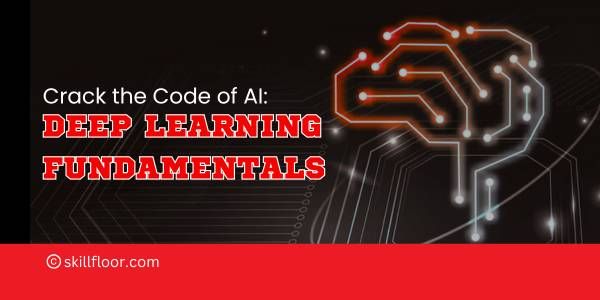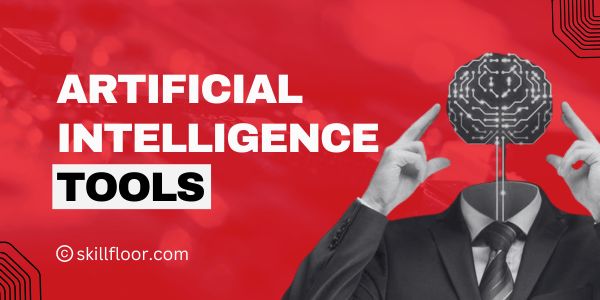AI in Everyday Life: How AI Is Impacting Your Daily Routine
Discover the pervasive influence of artificial intelligence on your daily routine. Explore the ways AI is shaping and enhancing various aspects of everyday life. Stay informed about the impact of AI technologies on your routines and habits.

The introduction sets the stage by defining Artificial Intelligence (AI) and highlighting its pervasive influence in modern society. AI refers to the development of computer systems that can perform tasks typically requiring human intelligence, such as learning, reasoning, problem-solving, and decision-making. Its significance in daily life cannot be overstated, as it has permeated various aspects of our routines, from personal devices to healthcare, transportation, education, finance, and more. Understanding the impact of AI on our daily lives is crucial in navigating and making informed decisions in this rapidly evolving technological landscape. This exploration will shed light on the myriad ways AI is shaping and will continue to shape, our everyday experiences.
AI in Communication
Chatbots and Virtual Assistants
Chatbots and virtual assistants have become integral parts of modern communication. These AI-driven tools are capable of understanding and responding to human queries in real time. They utilize natural language processing (NLP) algorithms to decipher user intent and provide relevant information or assistance. Whether it's on websites, messaging platforms, or mobile apps, chatbots offer immediate support, streamlining interactions and enhancing customer service experiences. Additionally, virtual assistants like Siri, Alexa, and Google Assistant are now ubiquitous in personal devices, enabling users to perform tasks, retrieve information, and even control smart home devices through voice commands.
AI-powered Language Translation
AI has revolutionized language translation by enabling real-time, accurate conversions between different languages. Advanced algorithms, bolstered by machine learning models, have greatly improved the precision and context-sensitivity of translations. This technology has proven invaluable in breaking down language barriers in various contexts, from international business communications to travel and global collaboration. As a result, individuals and organizations alike can now communicate effectively with people from diverse linguistic backgrounds, fostering greater inclusivity and understanding.
Email Filtering and Spam Detection
AI plays a vital role in managing the overwhelming influx of emails in both personal and professional settings. Through sophisticated algorithms, AI systems analyze email content, sender behavior, and other factors to categorize messages. This allows for the automatic filtering of spam, phishing attempts, and low-priority emails. By efficiently organizing and prioritizing incoming messages, AI-driven email filters save users significant time and effort, ensuring that they can focus on the most important communications.
In essence, AI-powered communication tools are not only transforming how we interact with technology but also how we engage with each other in an increasingly interconnected world. From instant support through chatbots to seamless language translation and effective email management, these innovations are reshaping the way we communicate in our daily lives.
AI in Entertainment
Personalized Content Recommendations
AI has revolutionized the way we consume entertainment content. Streaming platforms like Netflix and Spotify employ AI algorithms to analyze user preferences and viewing/listening habits. These algorithms then generate personalized content recommendations, ensuring that users discover new movies, TV shows, songs, and podcasts that align with their interests. This personalization enhances the overall entertainment experience and encourages users to explore a wider range of content.
Video Game AI
Video games have become increasingly sophisticated with the integration of AI-driven elements. AI-controlled characters, also known as NPCs (non-player characters), exhibit more realistic behaviors and adapt to player actions. Game developers use AI to create challenging opponents, dynamic storylines, and immersive gaming environments. AI's role in video games extends beyond gameplay, as procedural content generation algorithms can generate diverse game levels and worlds, ensuring that players have a unique and engaging experience each time they play.
AI-Generated Art and Music
AI has expanded its creative capabilities into the realms of art and music. Generative adversarial networks (GANs) and deep learning algorithms can produce artwork and music compositions that often blur the line between human and AI-created content. Artists and musicians are using AI tools to inspire and collaborate with, pushing the boundaries of creativity. Additionally, AI-generated art and music are finding applications in film scores, advertising, and other creative industries, showcasing the potential for AI to augment and enrich the entertainment landscape.
AI in Healthcare
Medical Diagnosis and Treatment
AI technologies have made significant strides in improving the accuracy and speed of medical diagnoses and treatment recommendations. Machine learning algorithms can analyze vast datasets, including medical records, imaging scans, and genetic information, to assist healthcare professionals in identifying diseases and conditions. AI-powered diagnostic tools, such as image recognition systems for radiology and pathology, can provide early detection of illnesses and offer tailored treatment plans. This not only enhances patient care but also reduces the likelihood of misdiagnoses.
Health Monitoring Devices
The proliferation of wearable health monitoring devices equipped with AI capabilities has revolutionized personal healthcare. These devices can continuously track vital signs, such as heart rate, sleep patterns, and activity levels, providing individuals with valuable insights into their health. AI algorithms analyze the collected data, offering personalized recommendations for improving well-being and identifying potential health issues. Such devices have become indispensable tools for proactive healthcare management.
Drug Discovery and Research
AI is accelerating the drug discovery process, helping researchers identify promising drug candidates more efficiently. Machine learning models can predict the effectiveness of compounds, analyze molecular interactions, and even suggest novel drug targets. Additionally, AI aids in the optimization of clinical trials by identifying suitable patient populations and monitoring trial data in real-time, expediting the development of new treatments. These advancements hold the potential to bring life-saving medications to market faster and more cost-effectively.
AI in Transportation
Autonomous vehicles, often referred to as self-driving cars, are a prime example of AI's transformative impact on transportation. These vehicles use a combination of sensors, cameras, lidar, and advanced machine-learning algorithms to navigate roads safely. With the potential to reduce accidents, increase efficiency, and provide mobility to those unable to drive, autonomous vehicles promise to revolutionize how we move from one place to another.
AI plays a crucial role in traffic management systems that optimize the flow of vehicles in cities and on highways. Smart traffic lights, for instance, use real-time data and AI algorithms to adapt signal timings based on traffic conditions, reducing congestion and improving the overall commuting experience. Such systems also aid in accident detection and emergency response coordination.
Ride-sharing and navigation apps like Uber, Lyft, and Google Maps rely heavily on AI. These platforms use AI to match riders with drivers, calculate optimal routes, and estimate arrival times. Additionally, they continuously analyze data from multiple sources, such as GPS, traffic patterns, and user feedback, to refine their algorithms and provide more accurate and efficient transportation services.
AI in Home Automation
The integration of AI into smart home devices has revolutionized the way we interact with our living spaces. These devices, equipped with sensors and connectivity features, can adjust settings and respond to user preferences automatically. For instance, smart thermostats can learn from your temperature preferences and adjust accordingly, optimizing energy usage and comfort. Similarly, smart lighting systems can adapt to your daily routines, enhancing convenience and energy conservation.
Voice-activated assistants like Amazon's Alexa, Google Assistant, and Apple's Siri are becoming central figures in modern households. These AI-powered systems utilize advanced natural language processing to understand and respond to verbal commands. They can control various aspects of the home, from adjusting the thermostat and playing music to providing information and setting reminders. This technology not only adds a layer of convenience but also offers accessibility benefits for individuals with mobility challenges.
AI-driven home automation plays a crucial role in enhancing energy efficiency and security. Smart systems can monitor and analyze energy usage patterns, enabling them to suggest and implement optimizations for lower consumption. Additionally, AI-powered security systems employ advanced algorithms for threat detection, distinguishing between regular activities and potential security risks. This level of intelligence enables homeowners to receive timely alerts and take appropriate action, providing peace of mind and a heightened sense of safety.
AI in Finance
Artificial intelligence has ushered in transformative changes across various aspects of the industry, providing both individuals and organizations with advanced tools and capabilities.
Automated Trading: AI-powered algorithms have revolutionized trading strategies and financial markets. These algorithms analyze vast datasets, identify patterns, and execute trades with incredible speed and precision. This technology has significantly improved liquidity, reduced trading costs, and enhanced market efficiency. Additionally, AI-driven risk assessment and fraud detection systems help financial institutions safeguard their operations.
Personal Finance Management: AI is empowering individuals to make smarter financial decisions. Personal finance apps and tools leverage AI to provide users with automated budgeting, expense tracking, and investment recommendations. These applications offer insights into spending patterns, savings strategies, and investment opportunities, helping users achieve their financial goals.
Customer Service: AI-powered chatbots and virtual assistants are becoming increasingly prevalent in the financial sector. These systems handle customer inquiries, process transactions, and provide information about account balances and recent transactions, offering 24/7 support. Additionally, AI is utilized in credit scoring and loan approval processes, streamlining and expediting lending decisions.
As AI continues to evolve in finance, it's essential to address the ethical and regulatory considerations that come with its implementation, such as data privacy, bias, and fairness in algorithmic decision-making. These challenges must be carefully navigated to ensure that AI benefits both individuals and the industry as a whole.
AI in Education
Adaptive Learning Platforms
Adaptive learning platforms represent a significant innovation in education. These platforms utilize AI algorithms to tailor learning experiences to individual students. By continuously assessing a student's progress and understanding of the material, these systems can dynamically adjust the content, pacing, and difficulty level of lessons. This personalized approach not only enhances comprehension but also helps students stay engaged and motivated in their studies.
Virtual Classrooms
Virtual classrooms powered by AI have become essential, especially in the context of remote and online education. AI technologies enable features like video conferencing, real-time collaboration, and automated attendance tracking. Virtual classrooms equipped with AI-driven tools facilitate interactive and immersive learning experiences, bringing students and teachers closer together, regardless of their physical locations.
Personalized Tutoring
AI-driven personalized tutoring systems offer students additional support outside of traditional classroom settings. These virtual tutors can assist with homework, answer questions, and provide explanations on a one-on-one basis. By analyzing a student's strengths and weaknesses, these systems offer customized exercises and materials to address individual learning needs, ultimately helping students achieve their educational goals more efficiently.
Future Trends and Emerging AI Technologies
As we look ahead, the landscape of AI in everyday life is poised for remarkable evolution. Emerging technologies promise to reshape our routines in profound ways. Quantum computing, with its unprecedented processing power, holds the potential to solve complex problems at speeds previously unimaginable. Natural Language Processing (NLP) is set to revolutionize communication, enabling more nuanced and contextually aware interactions with AI systems. Generative Adversarial Networks (GANs) are ushering in a new era of creativity, allowing for the generation of realistic images, videos, and even text. Additionally, edge computing is bringing AI closer to us, enabling faster processing and response times, which will be pivotal in applications like autonomous vehicles and IoT devices. These trends not only herald greater convenience and efficiency but also raise important ethical and regulatory considerations, emphasizing the need for responsible AI deployment in our daily lives. As these technologies continue to mature, their impact on our routines is bound to be transformative. Staying informed and engaged with these developments will be crucial in navigating this exciting AI-driven future.
In the future, emerging AI technologies promise to further transform our daily lives, from augmented reality experiences to advanced robotics. These innovations will continue to impact our routines, offering convenience, efficiency, and new possibilities. In conclusion, AI's significance in daily routines is undeniable, and staying informed about its evolution is crucial as we navigate an increasingly AI-driven world.






























































